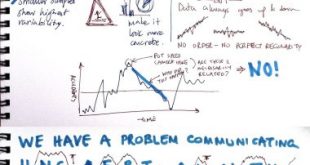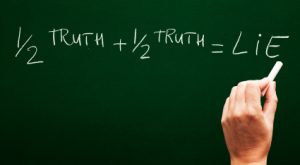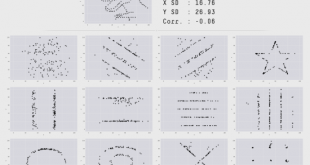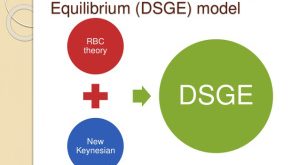The fundamental econometric dilemma Many thanks for sending me your article. I enjoyed it very much. I am sure these matters need discussing in that sort of way. There is one point, to which in practice I attach a great importance, you do not allude to. In many of these statistical researches, in order to get enough observations they have to be scattered over a lengthy period of time; and for a lengthy period of time it very seldom remains true that the...
Read More »Modern economics — pseudo-science based on FWUTV
Modern economics — pseudo-science based on FWUTV The use of FWUTV — facts with unknown truth values — is, as Paul Romeer noticed in last year’s perhaps most interesting insider critique of mainstream economics, all to often used in macroeconomic modelling. But there are other parts of ‘modern’ economics than New Classical RBC economics that also have succumbed to this questionable practice: Statistical significance is not the same as real-world significance...
Read More »‘Modern’ economics — blah blah blah
‘Modern’ economics — blah blah blah A key part of the solution to the identification problem that Lucas and Sargent (1979) seemed to offer was that mathematical deduction could pin down some parameters in a simultaneous system. But solving the identification problem means feeding facts with truth values that can be assessed, yet math cannot establish the truth value of a fact. Never has. Never will. In practice, what math does is let macro-economists locate...
Read More »The most beautiful identity in mathematics
The most beautiful identity in mathematics [embedded content] div{float:left;margin-right:10px;} div.wpmrec2x div.u > div:nth-child(3n){margin-right:0px;} ]]> Advertisements
Read More »On the fundamental difference between ergodic and non-ergodic processes in economics
On the fundamental difference between ergodic and non-ergodic processes in economics Yours truly has tried to explain the fundamental difference between time averages and ensemble averages repeatedly on this blog. Still people obviously seem to have problems grasping it. Maybe this video will help … [embedded content] div{float:left;margin-right:10px;} div.wpmrec2x div.u > div:nth-child(3n){margin-right:0px;} ]]> Advertisements...
Read More »Structural econometrics
In a blog post the other day, Noah Smith returned again to the discussion about the ’empirical revolution’ in economics and how to — if it really does exist — evaluate it. Counter those who think quasi-experiments and RCTs are the true solutions to finding causal parameters, Noah argues that without structural models empirical results are only locally valid. And you don’t really know how local “local” is. If you find that raising the minimum wage from $10 to $12 doesn’t reduce...
Read More »The statistical crisis in social science
The statistical crisis in social science [embedded content] Advertisements
Read More »Trig trick (student stuff)
Trig trick (student stuff) [embedded content] Advertisements
Read More »Don’t trust summary statistics alone
Don’t trust summary statistics alone When teaching statistics and econometrics yours truly always stress the importance of data visualization. The thirteen datasets shown above is a great illustration of why one should always plot data. They all have the same summary statistics — mean, standard deviation, correlation coefficient — but some are dinosaurs and others are stars … Conclusion: never trust summary statistics alone! Advertisements...
Read More »The spectacular failure of DSGE models
The spectacular failure of DSGE models In most aspects of their lives humans must plan forwards. They take decisions today that affect their future in complex interactions with the decisions of others. When taking such decisions, the available information is only ever a subset of the universe of past and present information, as no individual or group of individuals can be aware of all the relevant information. Hence, views or expectations about the future,...
Read More » Heterodox
Heterodox






